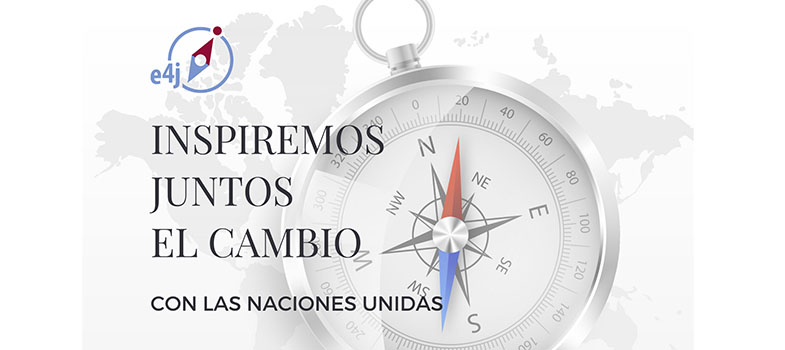Referencias y bibliografía adicional
Albany Education, (sin fecha),
Actividad de la Caminata del privilegio. Disponible en línea en:
https://www.albany.edu/ ssw/ efc/ pdf/ Module%205_1_Privilege%20Walk%20Activity.pdf [Consejo: Pulse la tecla Ctrl al hacer clic en un enlace para que se abra en una pestaña nueva (ocultar consejo)] Ambrose, Susan A., Bridges, Michael W., DiPietro, Michele, Lovett, Marsha C., Norman, Marie K., 2010, How Learning Works: Seven Research-Based Principles for Smart Teaching, Jossey-Bass, San Francisco.
Bain, Ken, 2004, What the Best College Teachers Do, Harvard University Press, Cambridge, MA, EE. UU.
Blum, Susan D., 2016, "I Love Learning; I Hate School": An Anthropology of College, pág. 3, Cornell University Press, Londres.
Brown, James, 2014, Anzac's Long Shadow: The Cost of Our National Obsession, Redback, Collingwood, Australia.
Chambers 21st Century Dictionary de Chambers (Ed.) (1999).
Chew, Stepen L., n.d.,
Teaching Resources: How to Get the Most Out of Studying, Universidad de Samford. Disponible en línea en:
https://www.samford.edu/ departments/ files/ Academic_Success_Center/ How-to-Study-Teaching_Resources.pdfCox, Damian, La Caze, Marguerite y Levine, Michael, 2017,
Integrity, The Stanford Encyclopedia of Philosophy (Edición de Primavera 2017), Edward N. Zalta (Ed.). Disponible en línea en:
https://plato.stanford.edu/ archives/ spr2017/ entries/ integrity/Daft, Richard L., 2011, The Leadership Experience, Cengage Learning, Stamford, EE. UU.
Gentile, Mary C, 2017,
Giving Voice to Values: How to Counter Rationalizations Rationally, Business, Ethics and Society, Escuela Empresarial de Darden, Universidad de Virginia, EE. UU. Disponible en línea en:
https://ideas.darden.virginia.edu/ giving-voice-to-values-how-to-counter-rationalizations-rationallyHallak, Jacques y Poisson, Muriel, (2007),
Corrupt schools, corrupt universities: What can be done? Serie: Ethics and corruption in education, UNESCO Press, París. Disponible en línea en:
http://unesdoc.unesco.org/ images/ 0015/ 001502/ 150259e.pdfHamilton, Neil W., Monson, Verna E. y Organ, Jerome M., 2012, Empirical Evidence that Legal Education Can Foster Student Professionalism/Professional Formation to Become an Effective Lawyer. University of St. Thomas Journal of Law and Public Policy, Vol. 10, págs. 48–62.
Johnson, Robert y Cureton, Adam,
Kant’s Moral Philosophy, The Stanford Encyclopedia of Philosophy (Edición de Primavera 2019), Edward N. Zalta (Ed.). Disponible en línea en:
https://plato.stanford.edu/ archives/ spr2019/ entries/ kant-moral/Langer, Ellen J., 1997, The Power of Mindful Learning, Addison-Wesley, Boston.
McKelvie-Sebileau, Pippa (2011).
Patterns of development and use of codes of conduct for teachers in 24 countries. Serie: Ethics and corruption in education. París: IIEP-UNESCO. Disponible en línea en:
http://unesdoc.unesco.org/ images/ 0019/ 001923/ 192392e.pdfNewman, Tony, y Blackburn, Sarah, 2002,
Transitions in the Lives of Children and Young People: Resilience Factors. Interchange 78, pág. 4. Disponible en línea en:
https://www.researchgate.net/ publication/ 234712817_Transitions_in_the_Lives_of_Children_and_Young_People_Resilience_Factors_Interchange_78Norman, Richard J, 1995, Ethics, Killing and War, pág. 1, Cambridge University Press, Cambridge, Reino Unido.
Northouse, Peter G., 2010, Leadership: Theory and Practice, Sage Publications, Londres.
Peace Learner, 2016,
Planificación de clase sobre la Caminata del Privilegio, Cultivating Peace and Nonviolence in the Field of Education. Disponible en línea en:
https://peacelearner.org/ 2016/ 03/ 14/ privilege-walk-lesson-plan/Poisson, Muriel, 2009.
Guidelines for the design and effective use of teacher codes of conduct. Serie: Ethics and corruption in education. París: IIEP-UNESCO. Disponible en línea en:
http://unesdoc.unesco.org/ images/ 0018/ 001850/ 185010e.pdfRachels, James y Rachels, Stuart, 2012, The Elements of Moral Philosophy, McGraw-Hill Education, Nueva York.
Rawls, John Bordley, 1971, A Theory of Justice, Belknap, Harvard University Press, EE. UU.
Riegel, J., 2013,
Confucius. En: Zalta, E. (Ed.), The Stanford Encyclopedia of Philosophy. Disponible en línea en:
http://plato.stanford.edu/ archives/ sum2013/ entries/ confucius/Rice, Thomas H. Speedy y Webb, Hollie, 2017,
The importance of Teaching Ethics (Revised). Disponible en línea en:
https://www.cjtrlaw.com/ thomas-h.-speedy-rice.htmlSchlaefli, Andre, Rest, James R. y Thoma, Stephen J., 1985, Does Moral Education Improve Moral Judgment? A Meta-Analysis of Intervention Studies Using the Defining Issues Test, Review of Educational Research, Vol. 55, pág. 346.
Stanford Encyclopedia of Philosophy. Disponible en línea en:
https://plato.stanford.edu/ index.htmlStewart, Noel, 2009, Ethics: An Introduction to Moral Philosophy, Polity Press, Cambridge.
Van Nuland, Shirley, 2009,
Teacher codes: Learning from experience. Serie: Ethics and corruption in education. París: IIEP-UNESCO. Disponible en línea en:
http://unesdoc.unesco.org/ images/ 0018/ 001858/ 185872E.pdfVisser, M., 2007,
System dynamics and group facilitation: contributions from communication theory, pág. 278, Wiley Online Library. Disponible en línea en:
https://onlinelibrary.wiley.com/ doi/ 10.1002/ sdr.391Vygotsky, L.S., 1978, Mind in Society; The Development of Higher Psychological Processes, Harvard College, EE. UU.
Wong, David, 2017,
Chinese Ethics, The Stanford Encyclopedia of Philosophy (Edición de otoño 2018), Edward N. Zalta (Ed.). Disponible en línea en:
https://plato.stanford.edu/ archives/ fall2018/ entries/ ethics-chinese/Yue, C. L., Bjork, E. L., y Bjork, R. A, 2013,
Reducing verbal redundancy in multimedia learning: An undesired desirable difficulty? Journal of Educational Psychology, 105(2), 266-277. Disponible en línea en:
https://psycnet.apa.org/ record/ 2013-09151-001